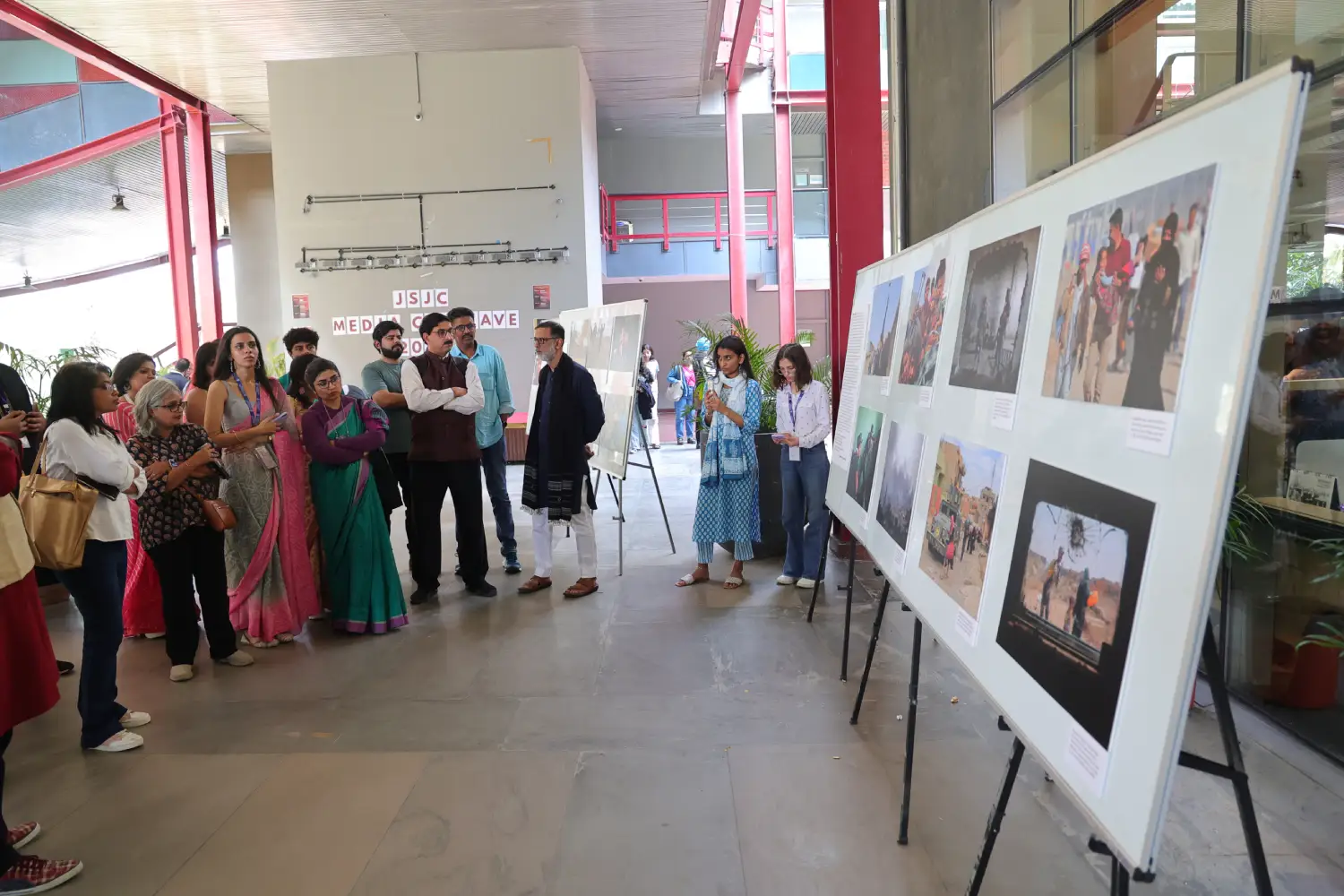Table of Contents
From the outset, the film and television industry may seem all-glamorous, yet the ones working in the process, in front of the camera and behind the scenes, know very well how much hard work is required to put together a project and present it to an audience. Through its comprehensive film making courses, the Jindal School of Journalism and Communication prepares its students to meet the requirements of the industry today, while also introducing them to the pioneers in the field and encouraging them to draw inspiration from their work.
The process of filmmaking demands a team of dedicated members, all playing their part in coordination. Apart from the prominent figures like the actors, directors and producers, a film crew consists of other smaller players like set designers, cameramen, video editors and so on. The same process applies to television programs. The study of film, television, and media develops various skills that open up a range of opportunities.
A Brief History Of Film & Television
Since the invention of the film camera in the late 1800s, filmmaking has been a powerful tool for sharing stories, conveying social messages, and captivating audiences. Television emerged in the late 1920s, and the BBC made the first public broadcast in August 1936. However, the internet, a new medium in this digital age, has redefined the process of filmmaking and distribution.
The films made in the early 1900s were all silent movies shot on black and white film. During the monochrome era of silent cinema, spanning from World War I to World War II, Hollywood began to establish itself as a household name, presenting feature-length films starring the likes of Charlie Chaplin and his contemporaries.
With the rise of colour films in the post-World War II era, cinema became a widely popular medium. In India, the post-independence era films were marked by the works of Syam Benegal, Satyajit Ray and many more. In recent years, Indian cinema has undergone significant changes in technical aspects and distribution. Consequently, the new era of filmmaking has introduced more nuances, making projects more convincing these days.

What Can You Expect To Learn On A Film Making Courses?
A Film Studies and New Media graduation program discusses a bit about the history of films and television, and swiftly moves on to the current proceedings and technologies that have been prevalent in the field. Students will develop a knowledge of audio-visual production and learn about storytelling techniques, two crucial components for making a movie, through film making courses in India.
In an institute like the Jindal School of Journalism & Communication, students enrolled in its film making courses are given the choice by the third semester itself to take up special subjects such as Direction & Screenplay, Cinematography, Sound Design, or Editing. Each of these subjects is integral to filmmaking, helping students focus and guiding them towards a path that genuinely interests them.
Why the Film and Television Institute of India Leads the Way in Film Education?
India is a massive country with the largest population, and it produces the largest amount of films each year in over 20 languages for local and regional audiences, creating a thriving industry with an equally great workforce. If you have a basic degree and the skills required in the industry, there will be no shortage of work.
Studying at a Film and Television Institute like JSJC, located in India, prepares you to work in the Indian industry and understand its mechanics. Bollywood is the most influential and commercial platform for Hindi-language films. Despite that, the country produces a massive number of regional films, using local languages and cultures. The influx of films coming out of India every year gives the greatest opportunity for graduates to gain experience and increase their work portfolio.
Frequently Asked Questions
1. What are the requirements for applying for Film Making Courses at the Jindal School of Journalism & Communication?
Ans: The initial requirement for applying at JSJC is 10+2 board certificates from an internationally or Government-recognised institution. They can be from any stream, but they must possess written and verbal skills, which will be tested during the admission process.
2. What is the admission process for the B.A/B.Sc (Hons.) Film & New Media program at JSJC?
Ans: Applicants are first tested based on their writing skills, and then an interview is conducted by the faculty. Apart from the personal assessments, the students are required to sit for one of the entrance exams from the following categories: JSAT, ACT, SAT, or JSAT-Law. They must also acquire a 50% score to be selected.
3. How is the course structure laid out for students of Film and New Media?
Ans: It is a 4-year course, with two semesters per year. In the first year, students are made familiar with the history of film and television and formal introduction to audio-visual techniques and storytelling. From the third semester onwards, they are able to pick a subject to specialise in. For their final year, they will submit projects and thesis papers and undertake internships to enhance their prospects.
4. Why choose the Jindal School of Journalism & Communication for a degree in Film & New Media?
Ans: JSJC is a prestigious institution that not only focuses on the academic development of pupils, but encourages them to learn the technical aspects by using cutting-edge equipment and software. The exceptional faculty regularly engages students in storytelling and debates to sharpen their communication skills.
5. Where can you find employment opportunities after graduating from JSJC?
Ans: After completing graduation from our renowned Film and Television Institute of India, you can start internships in the film industry or apply for a job in your field of expertise. You can become a writer, an actor, a director, a video editor, a sound engineer and many more, if you choose the right field of interest.





